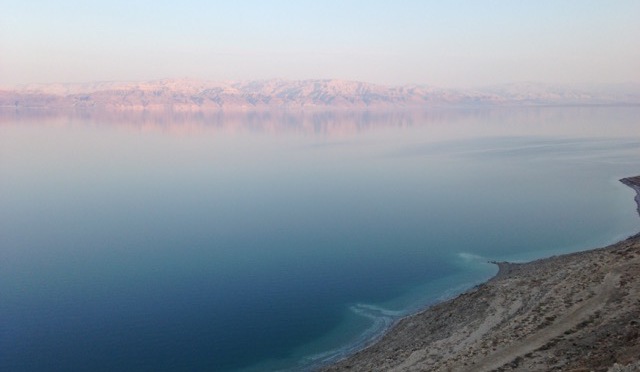There was so much to see in Jerusalem (more than we could reasonably see, actually), but that didn’t stop us from using it as a base for a couple of very interesting day trips. One day, we took the bus to Bethlehem, and, another day, we rented a car and drove to Masada and the Dead Sea.
Bethlehem
It was an easy bus ride from Jerusalem to Bethlehem,1 and we were able to navigate the city on foot once we arrived. As we walked from the bus station to Manger Square, we passed through some market streets.
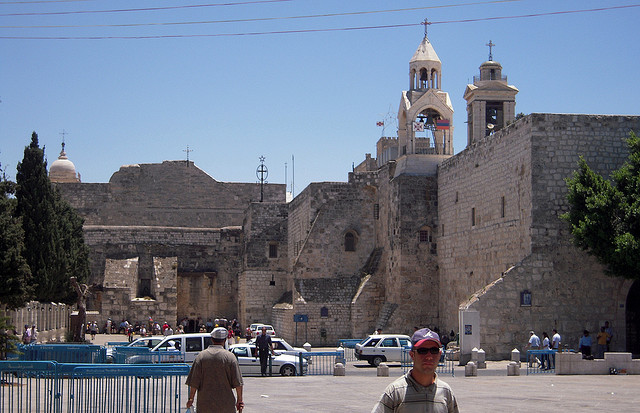
After a (not so) quick lunch, we made our way to the Church of the Nativity, which is famous for being constructed above a grotto in which Jesus is said to have been born. The emperor Constantine and his mother first commissioned a church on this site in 327 AD. That first church was destroyed by fire, and a replacement was constructed in 565. Over the course of the next centuries, the Church of the Nativity has been restored, renovated, and expanded many times.
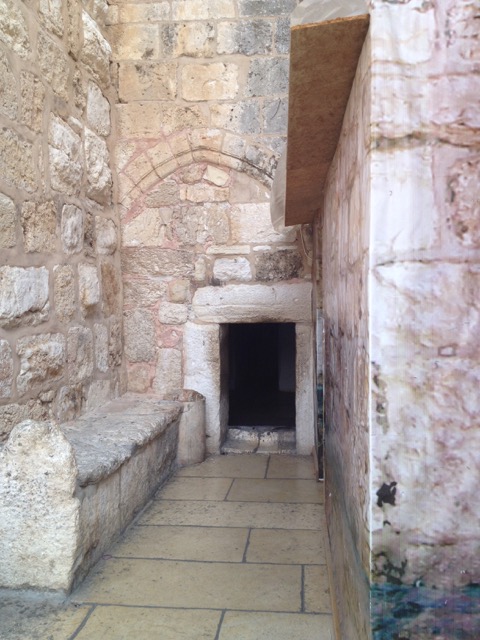
In fact, the Church of the Nativity was undergoing heavy restoration work during our visit. This is undeniably a positive thing — the church is included on UNESCO’s list of World Heritage Sites in Danger because of its extensive water damage — but it made for a somewhat disappointing experience. The interior of the church was choked with scaffolding and much of the fragile artwork had been protectively covered. Getting a good photo of the church’s interior was hopeless, and it was nearly impossible to get a sense of the atmosphere.
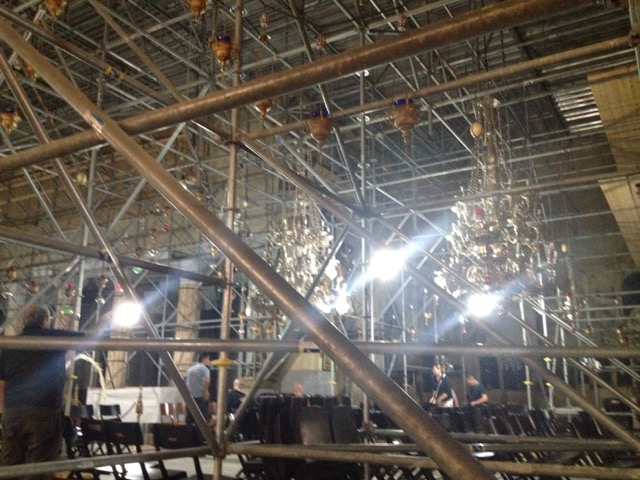
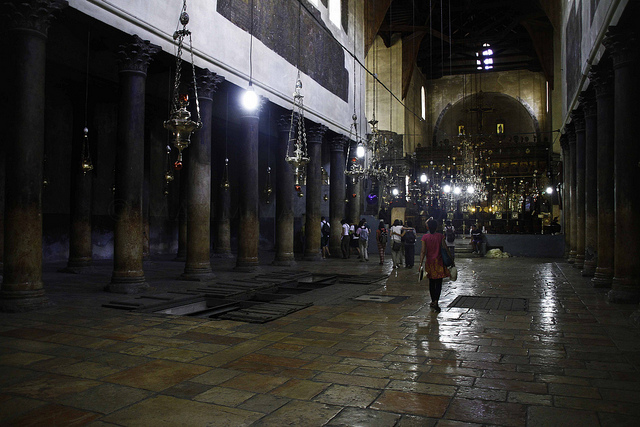
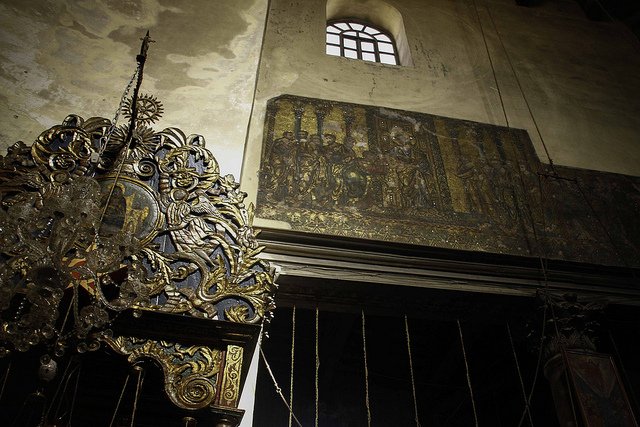
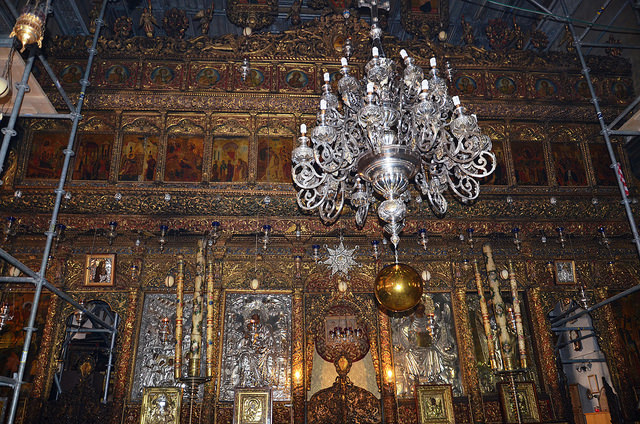
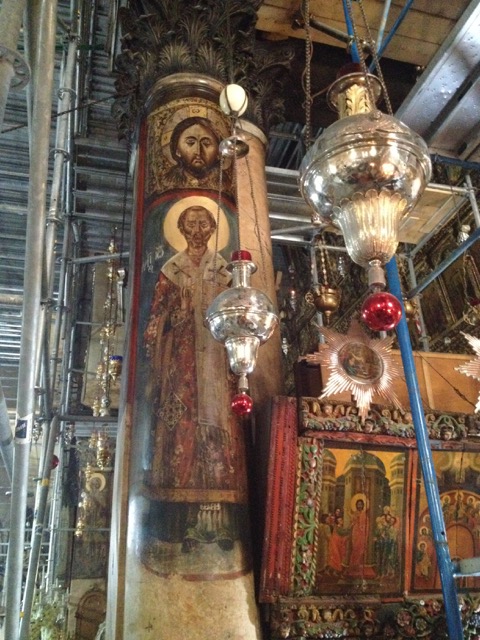
The grotto underneath the church, however, was spared from the accoutrements of restoration work and was considerably more atmospheric. Of course, it didn’t seem like it would be that way at first — there were too many jostling tourists trying to squeeze down into the humid underground grotto. The queue itself was such a claustrophobic experience that Marc abandoned it, leaving me alone to force my way into the enclosed space with a bunch of sweaty, hymn-singing tourists. There were so many bodies in such a small space that I couldn’t see anything, and tensions were rising as a tour guide began to speak crossly to the tour guide responsible for the singing tourists. After snapping a couple of cursory shots, I quickly exited the grotto.
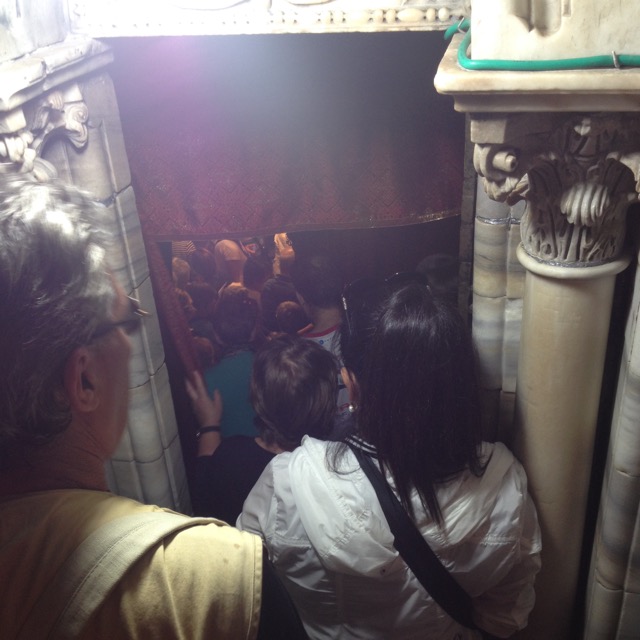
Marc and I then decided to rejoin the queue and try the grotto a second time. On this attempt, we entered the grotto with small number of quiet, respectful people, and we were able to appreciate the experience.
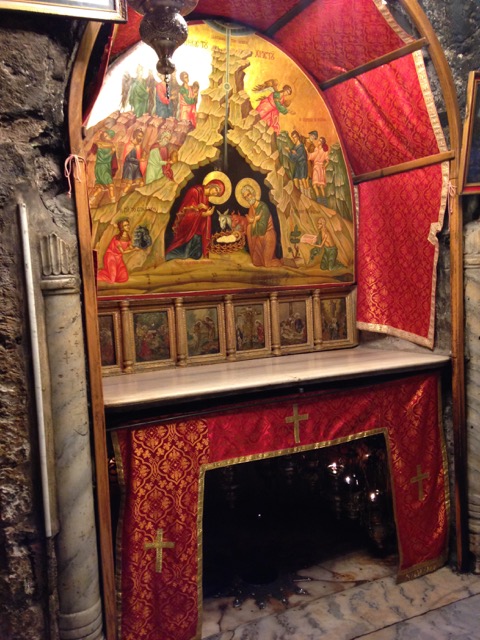
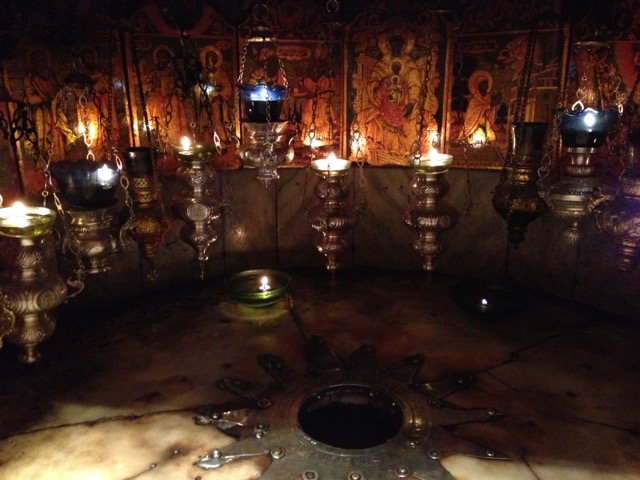
Masada
One day, we rented a car and drove from Jerusalem to Masada, where the remains of an ancient palace and fortification are located on a rock plateau. The buildings are said to date to the first century BC, and the site is said to have been an important location during the First Jewish-Roman War.
Masada is one of the most visited tourist spots in Israel, and one of the highlights of the visit is climbing up the mountain. To be honest, I was a little tired on the day of our visit, and so I did not appreciate the hike. In hindsight, I would either have gotten some rest the previous day or sprung for the cable car ride to the top. I wished I had saved my energy to explore the ruins on top of the plateau (which are really neat) and then hike back down (to take in the amazing view).
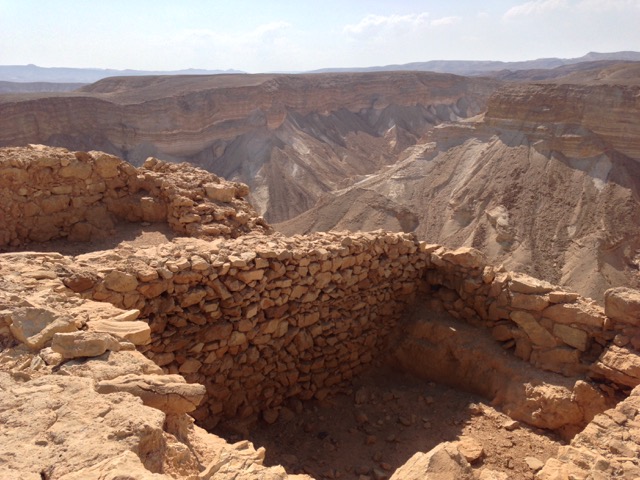
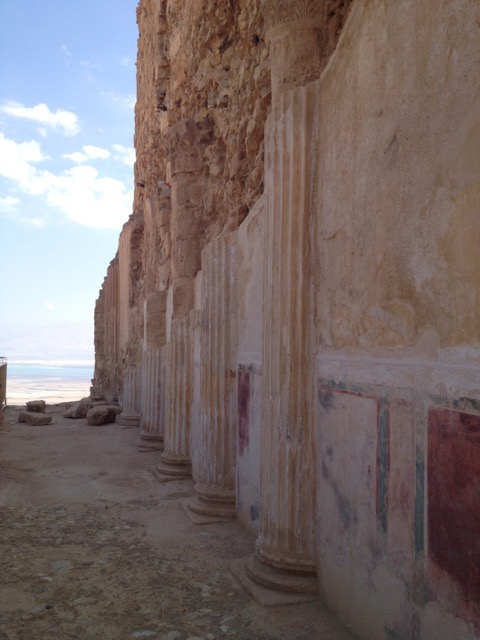
The view from the top of the plateau, taking in the surrounding desert and the Dead Sea, was breath-taking.
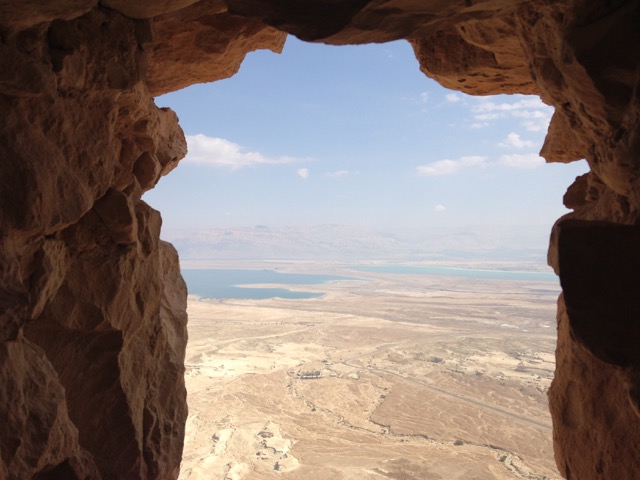
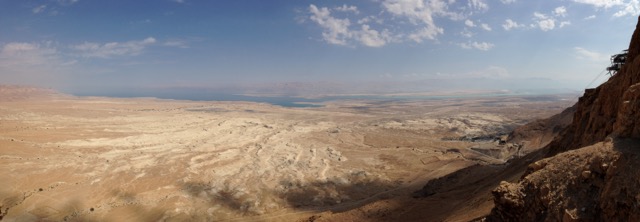
Dead Sea
After Masada, we stopped for a dip in the Dead Sea. Swimming in the Dead Sea was unquestionably one of the stranger and more interesting experiences of my life. Even though I understood before getting in that the high salt content of the water (more than one-third salinity) meant I would float, I didn’t realize that I would literally just bob around in it, nearly incapable of putting my head under water if I wanted to. (Which is something you definitely do not want to do – the high salt content will burn your eyes!) I have to imagine that being in the Dead Sea is comparable to being in outer space. It’s just nuts.
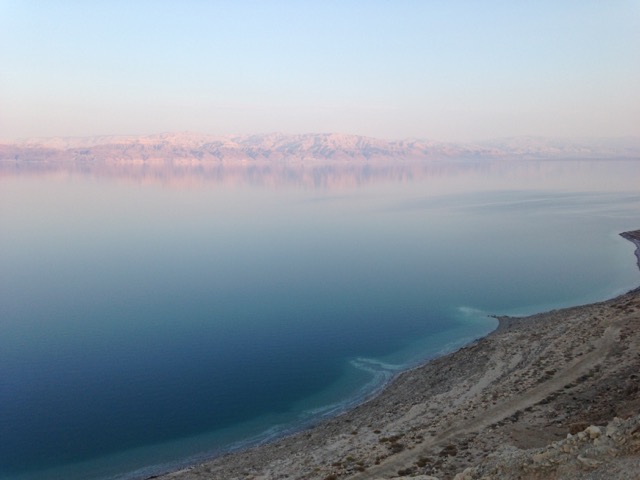
Where We Ate:
☆ Afteem. This falafel restaurant was listed as a “Top Choice” in our Lonely Planet guidebook and well-rated on TripAdvisor, but we were distinctly unimpressed. We couldn’t get anyone to pay any attention to us until we threatened to leave, and then we finally got a meal (but no menus from which to make a decision): falafel, pita, hummus, chickpeas, and Israeli salad. It was more than we could eat and more than we wanted to pay, but whatever. The food was good, but the experience was not.
1 At the bus station near the Damascus Gate in Jerusalem, board the 21 bus (which leaves at frequent and regular intervals) and take it to Bethlehem. From the point where the bus drops you in Bethlehem, it is approximately a 10- to 15-minute walk to Manger Square. You can pick the bus back to Jerusalem up at the same location. Note that the bus will travel through checkpoints and that you may be required to produce your passport.

